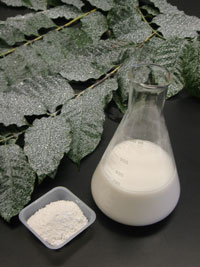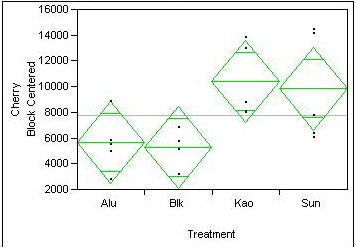Development of Shade Coffee Agroecosystems In Hawaii
Granting Agency: USDA, Tropical and Subtropical Agricultural Research
Project period: Oct 2003-Oct 2007
Summary

The quality of Hawaii's coffee is generally regarded as among the world's best. Part of this reputation comes from the fact that most coffee has traditionally been grown in the uplands of the Kona region on the Big Island, where cooler temperatures, afternoon cloud cover, and volcanic soils create ideal growing conditions for coffee. In this region, tree shade has not been seen as necessary to ensure quality coffee production. As coffee has expanded across the islands into less-than-ideal growing areas, irrigation and fertilizers have maintained productivity levels in the face of potential increased stress to the plants. The effects of shade on the quality of the coffee produced: bean size, number of defects, and brewed flavor (organoleptic properties), is unknown, but research elsewhere suggests higher temperatures and greater sun exposure reduce certain aspects of quality. Because these larger farms are highly mechanized, trees would interfere with efficient operations.
An alternative to tree shade is the use of a spray-on shade, a slurry of purified kaolinite powder sprayed on the leaves to reduce leaf irradiance, temperature, and light and water stress. We are comparing tree shade, black and aluminized shade cloth (40% light reduction), and the spray-on shade for their effects on coffee growth and yield, ecophysiology, and the quality of the beans themselves.

Light Reduction by
Kaolinite Spray

Leaf Characteristics
Under Shade Treatments

First-Year Cherry Yields at Kunia, Oahu
Results
Early results demonstrate the light and temperature reducing properties of the shade treatments, including the kaolinite spray. The number of passes made with the sprayer over the leaves is linearly related to the reduction in UV light and light within the photosynthetically active range (PAR). It appears that 2-3 passes with the kaolinite spray equals the amount of light reduction due to the shade cloth. In the field, leaves sprayed with kaolinite have the same reduction in temperature as leaves under artificial shade cloth (4-5oC). However, their specific leaf area (SLA, cm2/g) and chlorophyll concentration are similar to sun leaves.
Coffee yields for the first season show a reduction for the shade cloth treatments but not for the kaolinite spray. In the second year, kaolinite yields were double that of full sun plants! In Kona, the aluminet shade plant yields were similar to full sun in the second year. Coffee quality parameters were somewhat improved with shade, but there is probably no marketable increase in quality. However, biochemical analysis of volatile chemicals emitted by the brewed coffees allows for highly accurate discrimination of growing location and shade treatments. This has promise for authenticating coffee origins and agricultural practices.
Publications:
Idol TW, Steiman S, Bittenbender HC, Gautz L, and Jackson, M. 2007. Not all shade is created equal: reflections on shade management based on preliminary studies from Hawaii. Second International Symposium on Multi-Strata Agroforestry Systems with Perennial Crops. Sept. 17-22, 2007. CATIE, Turrialba, Costa Rica.
Steiman SR, Idol TW, and Bittenbender HC. 2007. Analysis of kaolin particle film usage and its application on coffee. HortScience 42:1605-1608.
To view a short video describing this particular research project, go to the T-STAR Highlights webpage and click on the "Coffee Under Cover" video link. The Windows Media Player file is very large (55 Mb). The RealMedia file will play while it loads, but it is not downloadable.
Future Directions:
I am now collaborating with Craig Elevitch, the director of Agroforestry Net, Inc. on an evaluation of shade coffee systems in Hawaii. We are comparing farms with different levels of shade, different tree species, and different farming practicies (organic or conventional, irrigated vs rain-fed) that are spread throughout the South Kona coffee-growing region. Dr. HC "Skip" Bittenbender is working with a large commercial coffee grower on applying kaolinite spray at an operational level. We hope to recruit a scientist to study the ecophysiological effects of kaolinite applications. Shawn Steiman is applying his biochemical analyses to a broader range of coffee samples in order to better develop correlations with quality parameters and authentication of coffee origins, varieties, and growing practices.